A Private-Public Partnership to Improve Pipeline Safety in the State of Alabama
Alabama Pipeline Emergency Response Initiative (APERI)
Major Pipeline Emergencies are High Risk/Low Frequency. However, there have been several large events in our state over the last few years. All of us, including the Operator and Emergency Responder, need to be prepared.
Incidents are often worsened by Emergency Responder involvement instead of being neutralized. Contributing factors to this include a lack of training, a lack of initial education, a lack of experience, and a rise in false alarm calls.
Our mailing address is: P.O. Box 345, Chelsea, AL 35043.
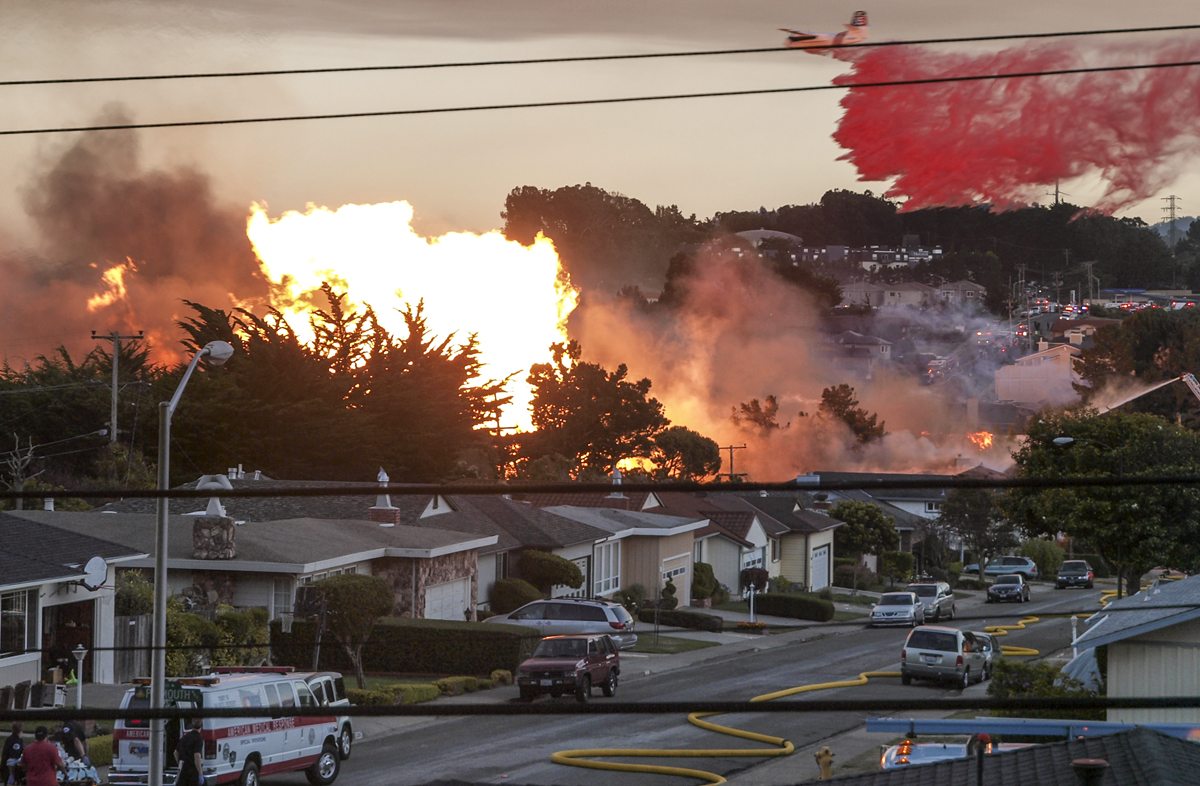
Why hasn't current outreach been effective?
- The industry has been using an Outside-In versus an Inside-Out approach.
- Responders have not been part of the solution.
- Responders do not see the need to “want” the training.
- A boss can make people work and get a job done. A leader gets people to “want” to get the job done.
- We want to be leaders in the training, awareness, and safety of Firefighters.
- We need an approach that encourages responders to come to us, where they are asking for the training, instead of being pushed into it or told they must (especially from an outside entity.)

Where are we now?
- APERI began moving forward in 2019
- A new course has been built with updated content
- An APERI Board has been established, made up of Operators and Emergency Responders
- Instructors throughout the state are currently being trained on course delivery
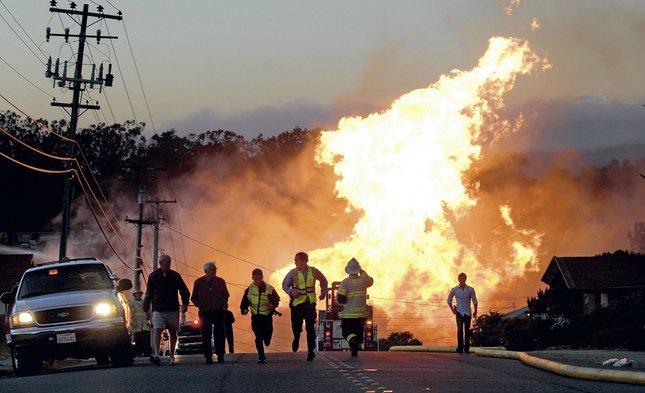
Program Structure
- TRAINING PLAN:
- Years 1-2: Focus on reaching out to Firefighters. After Year 2, expand to LEO, EMS, and Telecommunicators.
- Always have multiple trained instructors ready to teach in each region of the Fire College regional system.
- Target high-hazard areas and large groups: LEPCs and CRR / Training Officer Groups. Reaching these larger groups first will help the program grow organically. Many of the people in these groups also have influence in decision-making procedures at departments for training assignments.
- MAKEUP:
- Program Manager, Responder Outreach, Board of made up of Operators from different responsibilities and two Fire College members
- SHARED RESPONSIBILITY:
- Alabama Fire College, First Responders, and Pipeline Operators
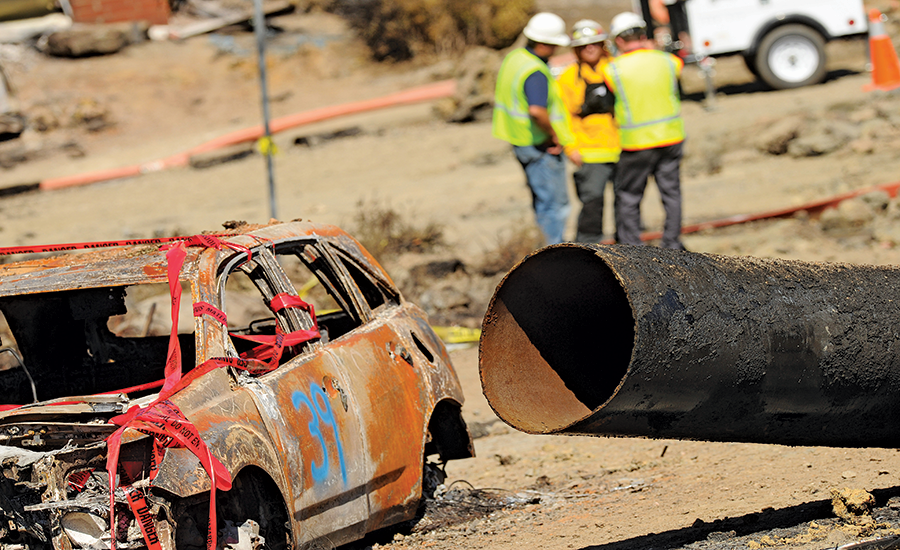
Why does it work?
- FOR RESPONDERS:
- Training built by responders, for responders; responders have influence over process and content
- FOR OPERATORS:
- Record-keeping
- Inside-out marketing
- Meets liaison requirement
- More responder involvement
- To meet the requirement for the training classes, the operator must be present and participate
- EXTRA BENEFITS:
- Extra Support from the Fire College with a dedicated AFC contact
- Responders becoming active in City Planning, Permitting, and Zoning
- Preventing the incident that would otherwise need response
Board Members
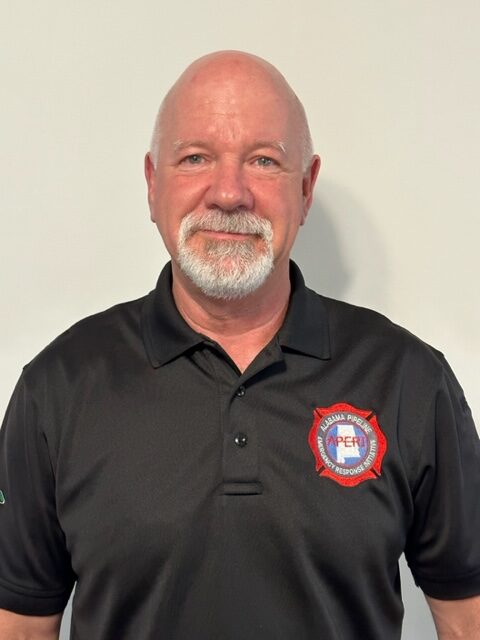
Board Chair
Don Williamson
Don WilliamsonDon was born and raised in Mississippi and moved to Birmingham, Alabama in 1989. He earned his Bachelor of Science degree in Public Relations from the...
Don was born and raised in Mississippi and moved to Birmingham, Alabama in 1989. He earned his Bachelor of Science degree in Public Relations from the University of Southern Mississippi, an Associate degree in Fire Science from Shelton State Community College and Paramedic education from the University of Alabama at Birmingham Medical Center. Don retired in August 2021 after 41 years in the fire service with a combination of 13 years of volunteer service and 28 years of paid service. He has worked for the City of Birmingham, City of Vestavia Hills and City of Chelsea fire departments in Alabama as a firefighter paramedic on engine, ladder, EMS transport and heavy rescue companies. Currently he is an Instructor, Program Manager and Board Chair for the Alabama Pipeline Emergency Response Initiative (APERI). He is also an adjunct instructor for the Alabama Fire College and Personnel Standards Commission for the Fire Officer Series and the Public Fire and Life Safety Educator Program. He continues to be involved in his community as Line of Duty Death Chaplain with Chelsea Fire & Rescue Department and local fire Public Education. Don has been married to his wife Melissa for almost 34 years and has three girls. Morgan, his youngest, is in the mission field with an international mission organization, Kathryn is a nurse at a local hospital in an ICU burn unit and Shelby, his oldest, is studying to be a private pilot with her husband. Don enjoys hunting, camping, hiking and long-distance cycling touring.
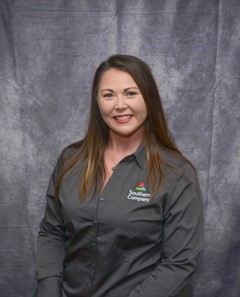
Board Co-Chair
Anathea Dortch
Anathea DortchAnathea was born in Denver, Colorado. She spent most of her childhood in Kansas and lived in four other states before moving to Georgia in 2004. She c...
Anathea was born in Denver, Colorado. She spent most of her childhood in Kansas and lived in four other states before moving to Georgia in 2004. She currently lives in Calhoun, Georgia. In 2009, after years working in finance, Anathea changed focus and became a customer service representative for Dalton Utilities, the local municipal utility company. In 2013, she was offered the opportunity to take on the role of Natural Gas Regulatory Compliance Coordinator. In this role, she singlehandedly coordinated all regulatory compliance requirements for the natural gas distribution system which included 8,500 services spanning three counties. She thrived in the new role and approached her responsibilities with excitement and passion. She was promoted 3 years later to Electric Service Regulatory Supervisor which expanded her responsibilities to include electric transmission regulatory compliance and supervising GIS for the natural gas and electric distribution systems. In 2017, Anathea was offered a position with Southern Company Services to coordinate the public awareness and emergency response programs for Southern Company Pipelines. In her current role, she is building programs to enhance engagement in the communities around the pipelines she supports. Anathea began working with Georgia Pipeline Emergency Responder Initiative (GPERI) in 2018. She has served as the Chair of the Bylaws Subcommittee and is the current Chair of the Database Subcommittee. In 2020, she became the Co-Chair of the Alabama Pipeline Emergency Response Initiative (APERI). She also served as the Co-Chair for the Tennessee Pipeline Emergency Responder Initiative (TN PERI) from 2021-2023. Anathea’s husband, Adam Dortch, is a Lieutenant for Gordon County Fire Department and has a photography business. Together they have three children. Amberly, the oldest, is a training manager for Buc-ees. She and her husband live in Calhoun. Addison lives in the Atlanta area and is a nurse care partner working in Labor and Delivery as she studies to become a registered nurse. Alex, the youngest and only son, is in the 5th grade.
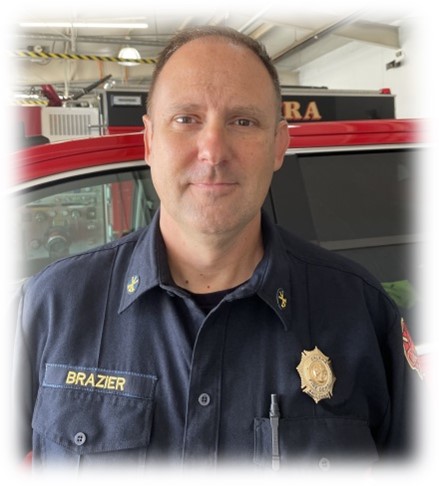
Board Member
David L. Brazier
David L. BrazierAs a young man growing up in Shelby County, David started his Fire Service journey volunteering with Vincent Fire Department. This is when he decided ...
As a young man growing up in Shelby County, David started his Fire Service journey volunteering with Vincent Fire Department. This is when he decided he wanted to do this as a career. From this point forward, he worked as a NREMT Paramedic with Sylacauga Ambulance for 8 years and a Shelby County 911 Operator / Dispatcher for 4 years. The opportunity to become a career Firefighter happened when the City of Sylacauga offered him employment. He worked for Sylacauga Fire Department for 3 years where among other class; went through Firefighter I at the Alabama Fire College. He left Sylacauga for an opportunity to work in the County he grew up in. Currently, David is a Battalion Chief with Calera Fire Department where he has worked for more than 20 years. In addition to his Fire Fighting career, he works with the Alabama Fire College and Work Place Safety Training as an Instructor. David works in the Haz Mat Program where he has been for the last 15 years. In this time he has been the Haz Mat Programs Coordinator for 3 years, worked as a Test Proctor, and helped develop curriculum. He has been a Contributing Author and Reviewer of several Haz Mat Publications to include; Rob Schnepp (2010). Hazardous Materials Awareness and Operations Second Edition. Jones and Bartlett. And the current edition AFC Awareness and AFC Operations Student Manual. David also travels extensively teaching Haz Mat across the Country and abroad. He has been to the RAF Lakenheath, England and SHAPE Airfield at Chievres Air Base in Belgium teaching NATO forces. David is a College graduate with a degree in Fire Science and has more than 40 certifications through the AFC, Homeland Security, and FEMA. He is married to his wife, Sondra for 23 years and has a 15 year old son, Landon. He is a resident of Sterrett and is a member of numerus organizations, to include Shelby County LEPC. He attends Faith Community Fellowship Church in Pell City and enjoys spending time with his wife and son.
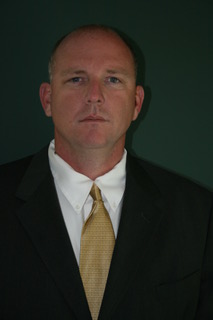
Board Member
Jim Green
Jim GreenJim was born in Meridian, Mississippi in 1968. He moved to Scottsboro, Alabama in 1976. After graduating from Scottsboro High School in 1986, he ear...
Jim was born in Meridian, Mississippi in 1968. He moved to Scottsboro, Alabama in 1976. After graduating from Scottsboro High School in 1986, he earned a BS in Textile Management from Jacksonville State University in 1992. Jim began his career at Scottsboro Water, Sewer, and Gas Board in 1992 and currently serves as the General Manager of Scottsboro WSG. In the past 30 years, Jim has earned his Master Plumber and Master Gas fitter license for the State of Alabama, Grade IV Water Operator License, and Grade IV Wastewater Operator License. Jim served as a past board member of the Alabama Natural Gas Association and currently serves as the President of Alabama Natural Gas Association. He also serves on the Alabama Pipeline Emergency Response Initiative (APERI) Board and is a member of the American Public Gas Association. Jim stays involved in his community, serving as a member of the Alabama Rural Water Association, the Jackson County Rescue Squad, Scottsboro Lodge 359, Jackson County Soil and Water Conservation District Supervisor and the Jackson County Cattlemen’s Association. Jim has been a member of First Baptist Church, Scottsboro for 47 years, where he has served on many committees. Jim has been married to his wife Penny for 29 years and they have two girls. Mary Margaret Green Johnson is a science teacher at the Scottsboro Jr. High School, and Lily is a senior at the University of North Alabama, and she will graduate in 2024 with a BS in Elementary Education. They are expecting their first grandchild in November. Jim enjoys cattle farming and hunting in his spare time.
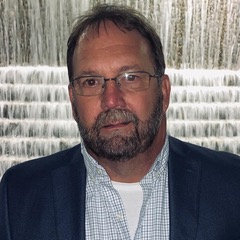
Secretary/Board Member
Kevin Mazingo
Kevin MazingoKevin was born and raised in Mobile, Alabama and now resides in Jemison, Alabama. He began his career in the Natural Gas Industry in 1988 with Transco...
Kevin was born and raised in Mobile, Alabama and now resides in Jemison, Alabama. He began his career in the Natural Gas Industry in 1988 with Transcontinental Gas Pipeline serving in various roles including Pipeline and Compressor Station Construction, Project Commissioning, Facility Automation and Pipeline Operations. He has over 35 years of industry experience. He is a Senior Operations Manager for Williams Gas Pipelines. He serves on the Board of Directors and as Secretary for the Alabama Pipeline Emergency Response Initiative (APERI) program. He also serves on the Board of Directors for the Alabama Natural Gas Association. He enjoys being involved in his community where he serves on the Board of Directors for Lions Clubs International, a civic organization with a focus on work with the blind and visually impaired as well as working with and supporting local High School Athletics where he serves as the Athletic Club President. Kevin has been married to his wife Cindy for 33 years and they have two children. Their son Brody is a High School Senior who is beginning to prepare for college life with plans to work towards his MBA and then on to a degree in Corporate Law. Tayler their daughter is a 2018 graduate of UAB earning her BS in Nursing. While working as a cardiac critical care nurse at UAB she earned her Master’s in nursing with a specialty in psychiatric/mental health and a Doctorate of Nursing practice in 2022. She is currently working in private practice in Birmingham.
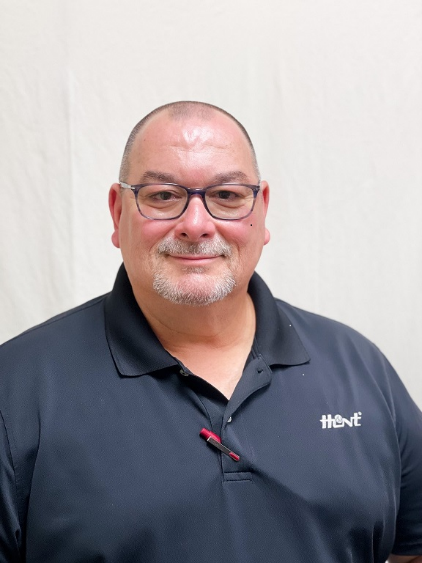
Board Member
Caroll Pellegrin
Caroll PellegrinCaroll Pellegrin is the Transportation Regulatory Compliance Manager for Hunt Refining Company, and is involved in transportation regulatory complianc...
Caroll Pellegrin is the Transportation Regulatory Compliance Manager for Hunt Refining Company, and is involved in transportation regulatory compliance matters at several Hunt affiliates in Alabama, Mississippi, and Texas. Caroll has been with Hunt since February 1983, and has performed various duties with Hunt for more than 40 years. In 1991, while working full-time for Hunt, Caroll earned a BS in Petroleum Engineering Technology and an AS in Petroleum Safety Technology from Nicholls State University. Upon completion of his degrees, he was transferred into the regulatory compliance field. Initially, Caroll’s duties covered the entire range of regulatory compliance associated with hazardous liquids, including all modes of transportation - pipeline, trucking, water, and rail. In addition, OSHA compliance and environmental regulations were included in his tasks, and still are to an extent. In recent years, Caroll has assisted Hunt in the security compliance field. Caroll has represented Hunt within APERI since its inception, and currently serves as a member of APERI’s Board of Directors. Caroll was born and raised in Chauvin, Louisiana, and has lived in Louisiana, Mississippi, and Texas. Caroll and his wife Connie have a combined 4 adult children and 5 grandchildren. They make their home in Tomball, TX.